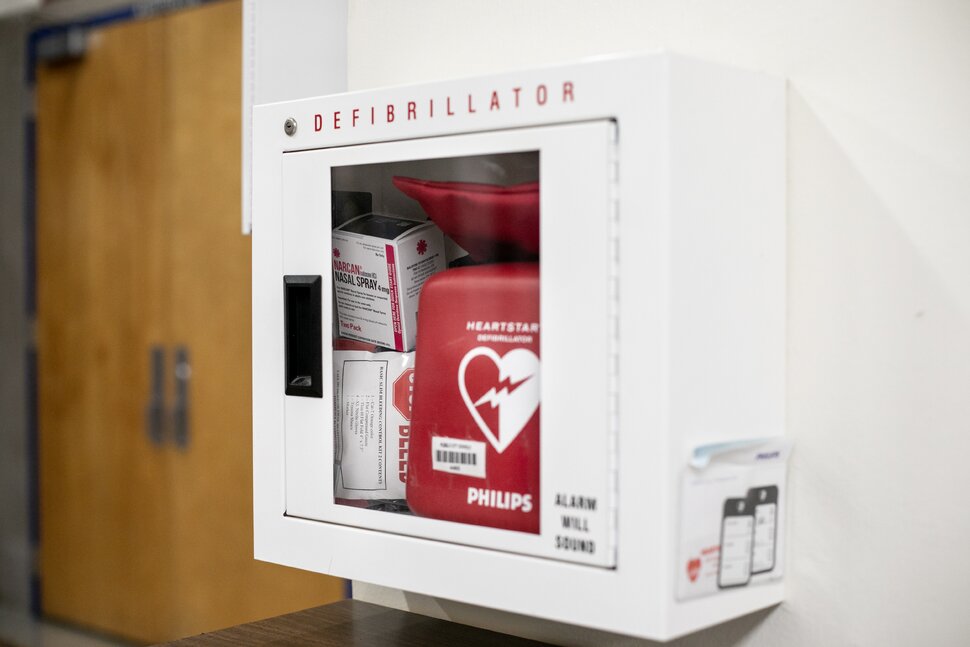More than 30 states have laws allowing schools or school employees to carry, store or administer naloxone, but concerns about being a ‘bad school’ have fueled a reluctance among some officials to stock it.
By Rae Ellen Bichell and Virginia Garcia Pivik | KFF Health News
Last year, a student fell unconscious after walking out of a bathroom at Central High School in Pueblo, Colorado. When Jessica Foster, the school district’s lead nurse, heard the girl’s distraught friends mention drugs, she knew she had to act fast.
Emergency responders were just four minutes away. “But still four minutes — if they are completely not breathing, it’s four minutes too long,” Foster said.
Foster said she got a dose of naloxone, a medication that can rapidly reverse an opioid overdose, and gave it to the student. The girl revived.
Forty-five miles away in Colorado Springs, Mitchell High School officials didn’t have naloxone on hand when a 15-year-old student overdosed in class in December 2021 after snorting a fentanyl-laced pill in a school bathroom. That student died.
Colorado Springs’ school district has since joined Pueblo and dozens of other districts in the state in supplying middle and high schools with the lifesaving medication, often known by one of its brand names, Narcan. Since passage of a 2019 state law, Colorado has had a program that allows schools to obtain the medicine, typically in nasal spray form, for free or at a reduced cost.
Not all schools are on board with the idea, though. Though more districts have signed on since last year, only about a third of Colorado districts had enrolled in the state’s giveaway program at the start of this school year. And within the dozen counties with the highest drug overdose death rates in the state, many school districts had not signed up in the face of ongoing stigma around the need for the overdose reversal medication.
The federal Substance Abuse and Mental Health Services Administration recommends that schools, including elementary schools, keep naloxone on hand as fatal opioid overdoses rise, particularly from the potent drug fentanyl. And 33 states have laws that expressly allow schools or school employees to carry, store or administer naloxone, according to Jon Woodruff, managing attorney at the Legislative Analysis and Public Policy Association, which tracks naloxone policies across the country.
Among those, about nine states require at least some K-12 schools to store naloxone on-site, including Illinois, whose requirement goes into effect in January. Some states, such as Maine, also require that public schools offer training to students in how to administer naloxone in nasal spray form.
Rhode Island requires all K-12 schools, both public and private, to stock naloxone. Joseph Wendelken, a spokesperson for the Rhode Island Department of Health, said in the past four years naloxone was administered nine times to people ages 10 to 18 in educational settings.



